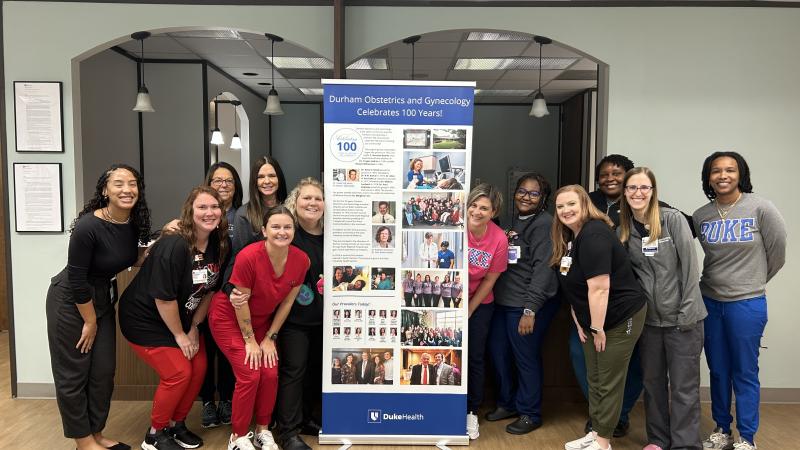
A Century of Care: The Legacy of Durham OB-GYN
Commemorating 100 Years of Community and Innovation
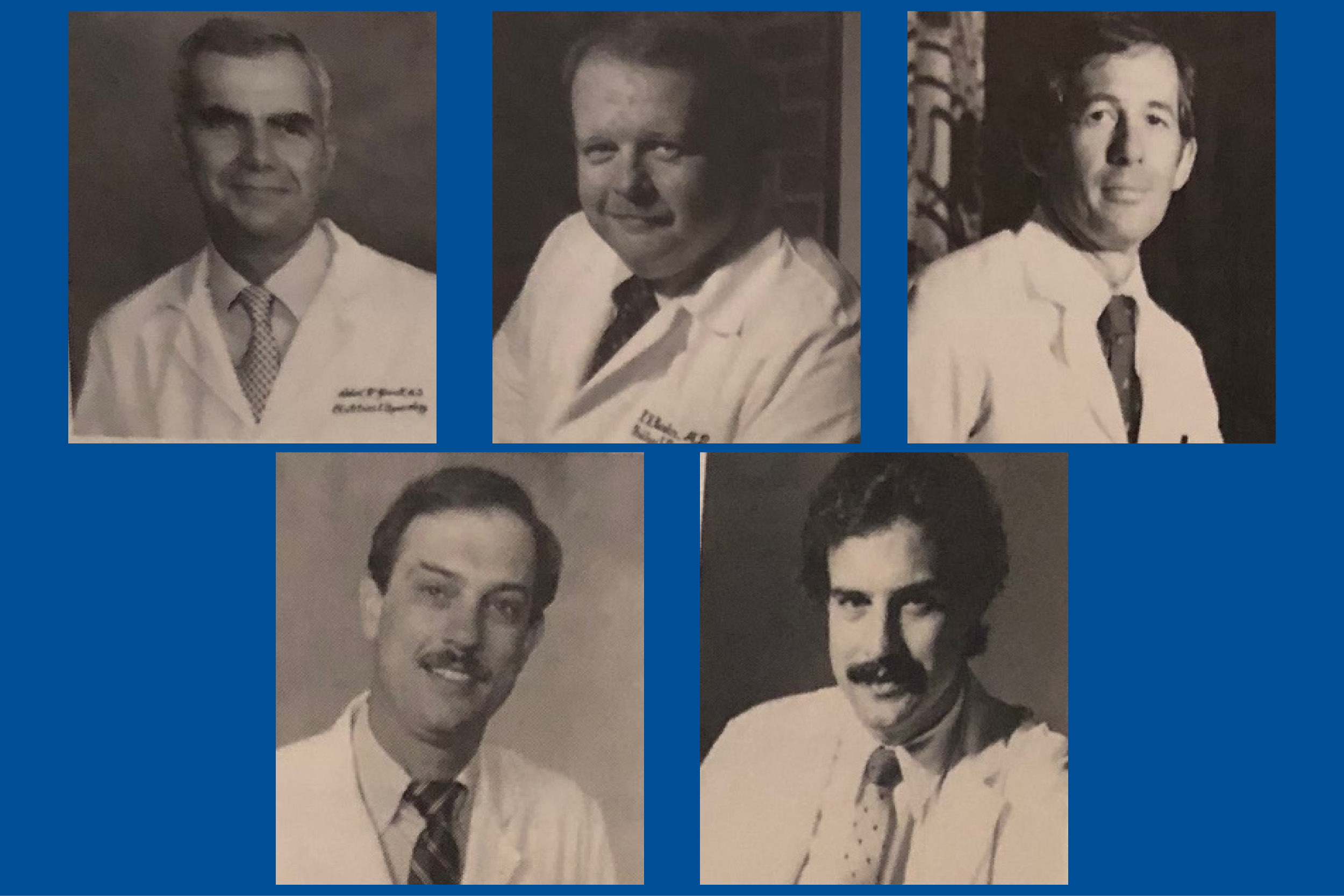
Historical Milestones
1925: Dr. F. Norman Bowles founds Durham OB-GYN
1930: Duke University Hospital opens, along with the Duke School of Medicine and School of Nursing
1946: Dr. Trogler Adkins joins the practice
1960: Dr. Roston Williamson joins the practice
1964-1985: Practice has a rapid expansion with the addition of six new providers (Drs. Robert Yowell, Yancey Culton, Rudy Barker, Allen Van Dyke Jr., William Lambeth and Paul Andrews)
1976: Durham County General Hospital opens (now Duke Regional Hospital)
1985: The members of the practice help found and open Davis Ambulatory Surgical Center
1988: Durham OB-GYN welcomes its first female physician, Dr. Karen Clark, and first midwife, Deirdre Poe
1997: Durham OB-GYN joins Duke as one of the first community Private Diagnostic Clinic (cPDC) practices, now the Duke Health Integrated Practice (DHIP)
2025: The practice celebrates 100 years of continuous service

A century ago, even before Duke University Hospital opened its doors, a small obstetrics and gynecology practice quietly began shaping the future of women’s health care in Durham. In 1925, Dr. F. Norman Bowles founded what would become Durham OB-GYN — the oldest continuous practice for that specialty in the city. Originally a two-doctor partnership — Dr. Bowles was joined by Dr. Trogler Adkins in 1946 — grew steadily as Durham itself transformed. Between 1960 and 1985, Dr. Roston Williamson, Dr. Robert Yowell, Dr. Yancey Culton, Dr. Rudy Barker, Dr. Allen Van Dyke Jr., Dr. William Lambeth and Dr. Paul Andrews joined the practice. A century after the founding, their legacy lives on through a practice that has evolved in name, structure and affiliation, but never in its unwavering commitment to patient-centered care.
From its original office near Brightleaf Square to its current locations in North and South Durham, the practice has been both a witness to and architect of progress in women’s health.
A Legacy Born Before Duke University Hospital
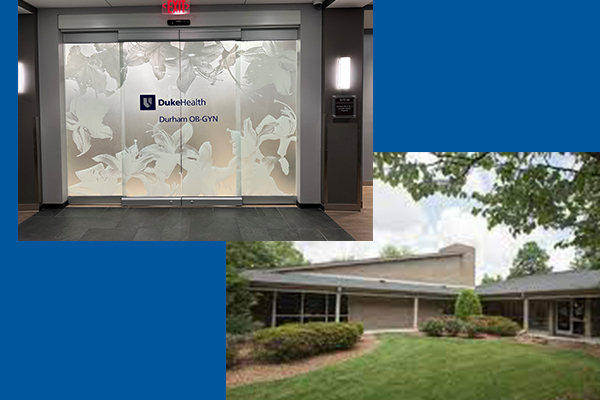
For decades, the practice served women from every corner of the community, delivering babies at the former Watts Hospital and occasionally Duke University Hospital. In 1976, with the opening of Durham County General Hospital (now Duke Regional Hospital), Durham OB-GYN moved its practice to one of the Southeast’s most advanced medical facilities, expanding both its reach and capabilities.
That same spirit of expansion led the group to help co-found Davis Ambulatory Surgical Center in 1985. The new center offered the opportunity to collaborate with more physicians and surgeons to bring cutting-edge outpatient surgical care to the region, which was a pioneering move at the time.
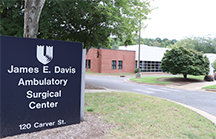
The practice has continued to grow over the years. In 1988, Durham Obstetrics and Gynecology welcomed its first female physician, Dr. Karen Clark, as well as its first midwife. A larger collaborative cohort of providers, including midwives, nurse practitioners and physician assistants, has offered benefits that were not available in a small practice, such as increased patient access, a dedicated on-call physician and a team approach to manage all aspects of patient care during busy times. Dr. Andrews, who served at Durham OB-GYN for 35 years before retiring in 2020, recalls the benefits of that growth.
“Simply having another set of caring hands is crucial during difficult surgeries or deliveries. The physician partners and mid-level practitioners would freely consult one another on challenging cases.”
— Dr. Paul Andrews
Becoming Part of Duke: A Partnership in Progress
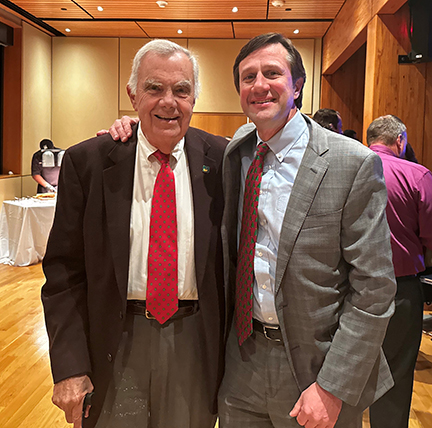
While the practice had long maintained informal ties with Duke — many of its physicians trained or taught there — it wasn’t until 1997 that Durham OB-GYN formally joined the health system as one of the first community Private Diagnostic Clinic (cPDC) practices. This milestone marked the beginning of a new era, one of academic integration and shared innovation that would eventually evolve into today’s Duke Health Integrated Practice (DHIP).
Dr. Richard Duncan III, who joined the practice in 1998, recalled that pivotal moment. “We were proud to be among the first private groups to join Duke faculty. The relationship has been an evolution in progress, and one that allows us to pursue academic interests while continuing to care for the same patients we’ve served for generations.”
Human Connection Through the Generations
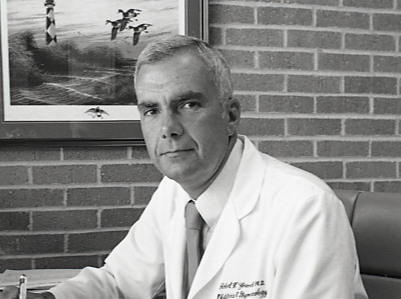
As noted by emeritus partner Dr. Yowell, who was born at Watts Hospital, trained at Duke University School of Medicine and practiced at Durham OB-GYN from 1969 until his retirement almost four decades later, “The legacy is not just institutional, it’s also deeply personal and communal. Three of my children were born at Duke. It’s truly a community in every sense of the word.”
Dr. Matthew D. Barber, current president of the Duke Health Integrated Practice and vice dean for clinical affairs in the Duke University School of Medicine, is a former ob/gyn resident and fellow who studied under Dr. Yowell and the other division members. He also served as chair of the Duke Department of Ob/Gyn from 2017 to March 2025.
“Medicine is built on generations of shared learning. I was fortunate to learn through Dr. Yowell’s patience and precision, and now I see his influence ripple through both Durham OB-GYN as a practice and the ob/gyn students we are teaching. That continuity of curiosity, care and craftsmanship is who we are at Duke — one generation shaping the next, endlessly refining what it means to heal.”
— Dr. Matthew D. Barber, president of the Duke Health Integrated Practice
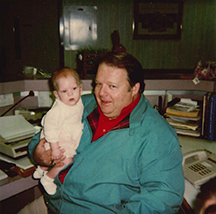
The practice's legacy of care is woven throughout its story of resilience, transformation and enduring compassion. Its multigenerational continuum of care endures. Dr. Andrews shared stories of the relationships he developed over years of caring for multiple generations of women within one family. “It is a special thing to be part of a family’s life cycle. I get the honor of caring for patients as adults that I have known since their own births. I have delivered a baby girl, watched her grow into adulthood, and then had the honor of helping her through her own pregnancy and delivery. It’s a powerful, full-circle experience that is rare in health care.”
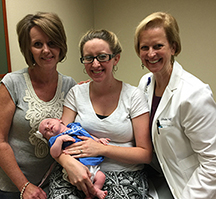
Health Center Administrator Abbey Loftis shared that her mother was delivered by one of the clinic’s former physicians, Dr. Barker, and the same sonographer, Amy Mills, who performed her mother’s ultrasound (during her pregnancy with Abbey) still works at the clinic today. This continuity — of people, purpose, and place — is what makes Durham OB-GYN unique.
Dr. Linda Fetko, who was part of the practice from 2001-2016, reinforced that, stating, "What I loved about Durham OB-GYN was that it felt like family."
Looking Ahead: The Next 100 Years
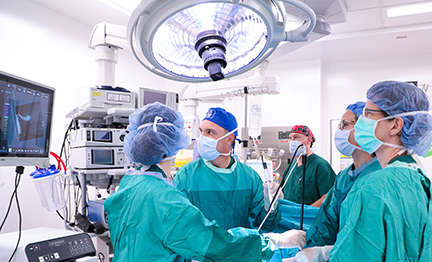
Health care, surgery and obstetrics have changed dramatically over the 100 years. Dr. Yowell, who practiced through the dawn of laparoscopy and the arrival of ultrasound, remembers the transformation vividly. “When I started, we didn’t even do imaging on pregnant women,” he said. “With the introduction of ultrasound and fetal monitoring devices, suddenly we had a much clearer picture of what was going on with both mother and baby during delivery. It changed diagnosis and treatment forever.”
Since becoming a part of the Duke health system in 1997, the practice’s access to specialty services, innovative technologies and augmented opportunities for academic involvement have grown exponentially. Current Medical Director and member of the DUHS Board of Directors Dr. MargEva Cole emphasizes that integration with Duke Health has strengthened both patient care and education. “Our providers are faculty members in the Duke University School of Medicine. We’re involved in teaching residents and ensuring the next generation of physicians continues to push women’s health forward,” she noted.
Today, Durham OB-GYN’s clinicians use advanced imaging, data driven prenatal care pathways, electronic education tools to enhance patient care and engagement through initiatives developed cooperatively throughout the Duke Department of Ob/Gyn. They also work side by side with the Duke certified nurse midwives (CNMs) to deliver babies at Duke Regional Hospital. “Our patients truly see a benefit every day as being part of a larger care network at Duke — we deliver high-touch, highly personalized and, when necessary, highly specialized care,” said Dr. Cole.
Upcoming initiatives at Duke Ob/Gyn include increased coordination of integrated care for menopausal health involving other medical specialties, enhanced patient education through Epic tools and a renewed focus on advocacy for conditions historically dismissed or overlooked. “We’re seeing a shift toward proactive care, managing conditions like fibroids and endometriosis earlier, often with less invasive approaches,” Dr. Cole said. “Our goal is to meet patients where they are with the latest knowledge and technology.
“We’re planning for the next 50 to 100 years. That means bringing in new physicians, expanding services and building on our long legacy of compassionate, evidence-based care.”
— Dr. MargEva Cole, medical director of Durham OB-GYN
Current Providers
After 100 years, one thing remains unchanged: Durham OBGYN’s steadfast dedication to caring for women across generations — with expertise, compassion, and heart.
Current providers:
MargEva Cole, MD
Richard Duncan, MD
Nancy MacLaurin, MD
Amber Jarvis, MD
Ana Buck, MD
Mollie Kotzen, MD, MPH
Beth Wrenn, FNP
Pattie Eberhard, WHNP
Erin Figgins, PA
Renee Buchser, WHNP
Ellen Byars, WHNP
Jules Santos, WHNP